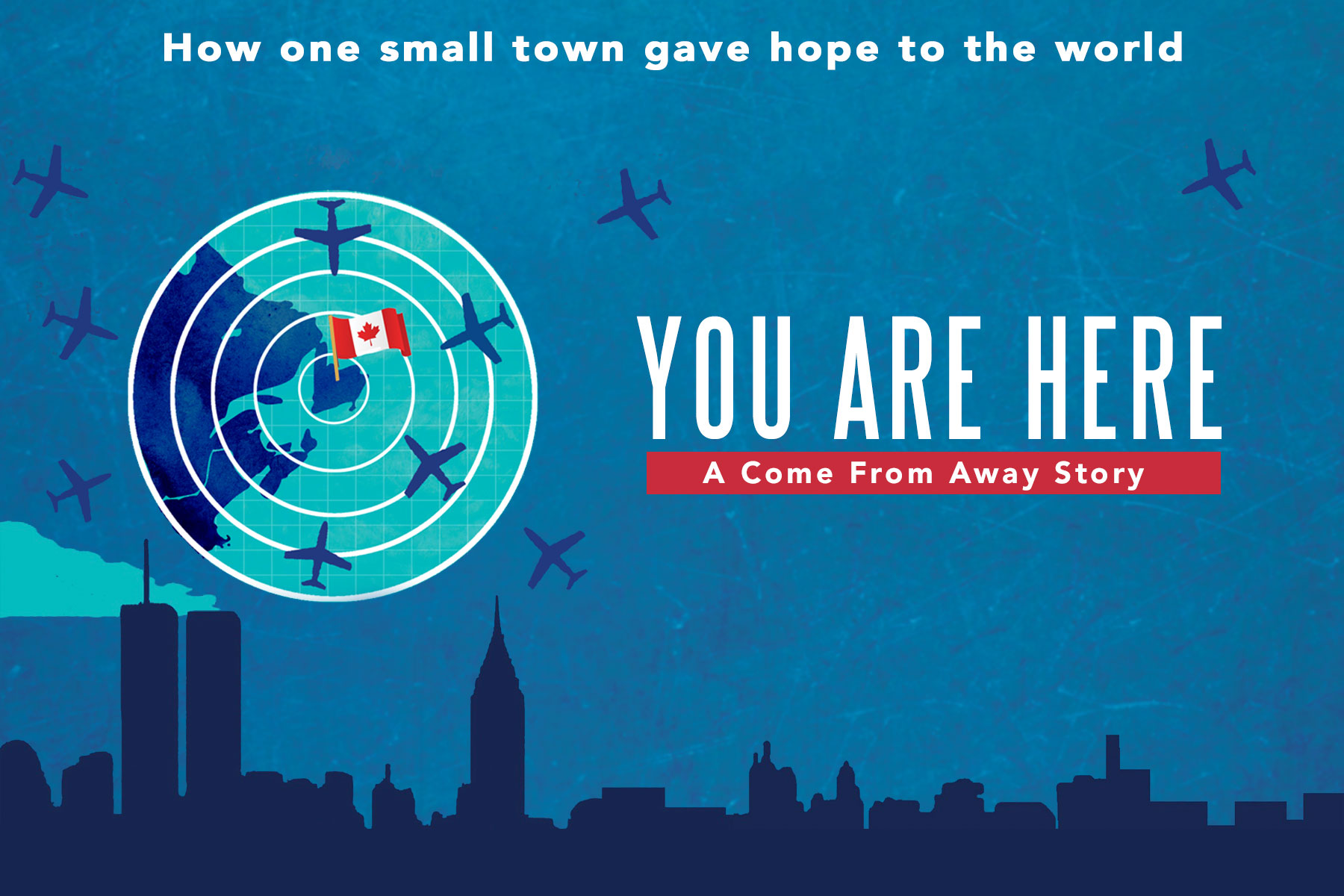When terrorists attacked the United States in 2001, 6,700 passengers were forced to land in Gander, Newfoundland, a town with a population of 9,000. On Wednesday, Sept. 11, an inspiring story about that week lands in theaters.
When terrorists attacked two cities and killed nearly 3,000 people in 2001, the world mourned.
But 1,460 miles away in the small town of Gander, Newfoundland, hope was shining bright.
Gander was the default destination for 38 planes and about 6,700 people travelling over the Atlantic Ocean when the United States closed its airspace on Sept. 11, 2001.
Those 6,700 people were heading to places like Denver and Disney World when their planes were told to make a sharp right and land in Gander, a North American city in Canada that is so far east that it’s closer to London, England than to St. Louis, Mo.
As one passenger later said: “I had never heard of Newfoundland.”
They were stranded in a place they didn’t want to be, far away from friends and family. Even worse, they were stuck in a town that—on first blush—wasn’t equipped to house and feed them. Gander’s population was about 9,000. Where were these 6,500 extra people supposed to go?
But a strange thing happened. Over the course of the next five days, Gander’s citizens became the passengers’ friends and family. They opened their arms to clothe and feed 6,700 strangers, not knowing if a terrorist was hiding among them.
Gander became a Canadian version of Mayberry, complete with a friendly policeman, a kind mayor, and hundreds of volunteers who cooked meals, found them a bed and even gave these stranded strangers a tour of the scenic island.
Next Wednesday, Sept. 11, a documentary about this unique week—You Are Here—lands in cinemas. It includes interviews with crew members, passengers, citizens and city officials who saw their lives changed—for the better—during a period most of us were despondent. It will be shown for only one night.
“We saw (6,700) people who needed food. They needed clothing. They needed shelter. But most of all, they needed love,” the mayor says in the film. “We showed them that human kindness will outdo hatred any day.”
You Are Here is a feel-good film that will give you the hope-filled emotions of a Hallmark film—yes, there’s a surprising love story in it—and the down-home nostalgia of The Andy Griffith Show. We learn how the Salvation Army pitched in to help. We discover how a Baptist pastor used a Bible to communicate with Russians. Most of all, we watch ordinary people do seemingly extraordinary things, taking care of people round-the-clock. When the week ended—most passengers were in Gander for five days—many were sad they were leaving.
Home videos from the week bring the story to life, as do clips from a local TV channel. That channel was closely monitored by citizens throughout the week to learn what was needed.
“You asked for moose (on the show), you got 20 pounds of moose from 15 different people,” the host says, reflecting on that week.
Because the passengers were prohibited from taking their luggage off the planes, they needed clothes, too. Ganderites filled in that gap, as well.
You Are Here isn’t a faith-based film, but it nevertheless serves as an example of the love in action God commanded of the church: “Do not neglect to show hospitality to strangers …” (Heb. 13:2).
The story is so uplifting that it inspired books and a Broadway musical.
“In (those) five days we became very close to those people,” the mayor says. “… (O)n the fifth day, we lost 6,700 family members.”
Content
You Are Here is unrated but should be treated like a PG film. It contains minor language (one “living h-ll” and about five OMGs—some heard from the day of the attack) and discussion of the terrorist attack (a first responder says he saw body parts on the ground outside the World Trade Center). Among the passengers interviewed are two gay men who were a couple on the day of the attack. We also see people drink alcohol.
Discussion Questions
1. How would you react if 6,700 strangers landed in your city, needing food and clothing?
2. What can the passengers teach us about contentment?
3. What can the citizens of Gander teach us about how the church should welcome strangers?
